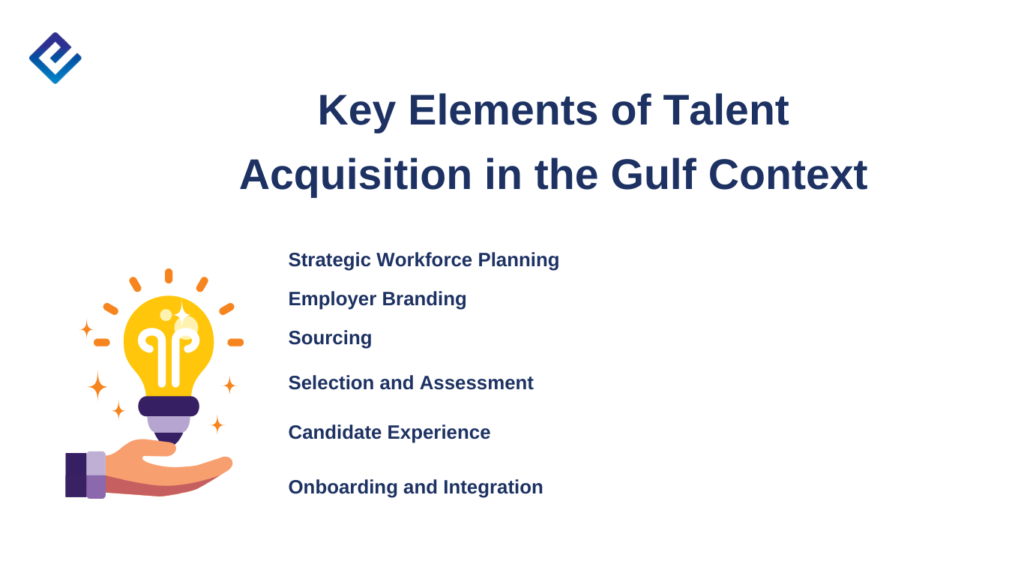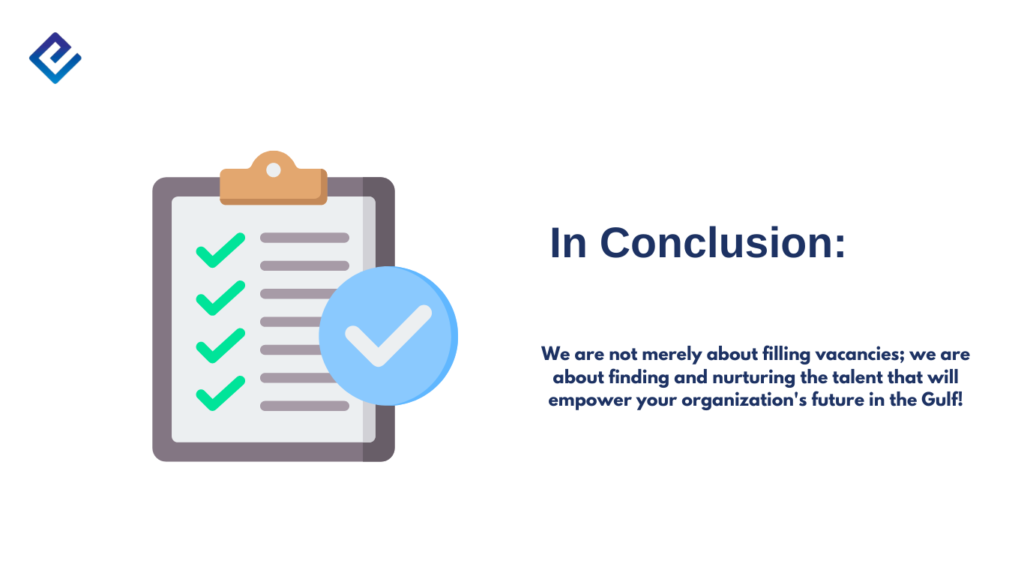Talent acquisition is the strategic process of identifying, attracting, and acquiring the right talent to fulfill an organization’s current and future staffing needs, especially crucial when considering the unique requirements of the Gulf job market, including securing work visas in the Gulf. Moreover, it goes beyond traditional recruitment by focusing on a holistic approach to workforce planning, building an employer brand, and creating a seamless candidate experience. At its core, talent acquisition aims to align an organization’s talent needs with its business goals, thus Top Recruitment Agencies in India for Gulf Jobs.
Key Elements of Talent Acquisition in the Gulf Context

- Strategic Workforce Planning: Understanding an organization’s goals in the context of the Gulf market is paramount. This involves identifying specific skills and competencies needed to thrive in this unique environment.
- Employer Branding: Attracting top talent often involves building a strong employer brand that resonates with professionals seeking Gulf career opportunities. In other words, this entails showcasing an organization’s values, culture, and opportunities, while also addressing the specific needs of those seeking work in Dubai, work in Saudi, work in Oman, or other Gulf locations.
- Sourcing: Talent acquisition professionals use various methods to identify and engage potential candidates, including leveraging networks and partnerships with entities like Emirates Consultants who specialize in Gulf recruitment.
- Selection and Assessment: Evaluating candidates involves assessing their skills, experience, and cultural fit, with an added emphasis on their eligibility for a work visa in the Gulf.
- Candidate Experience: Providing a positive candidate experience is vital for attracting top talent, especially when candidates are considering relocating for a Gulf career. Therefore, clear communication, timely feedback, and assistance with the work visa process are all important factors.
- Onboarding and Integration: Successful talent acquisition extends beyond hiring. Consequently, it includes robust onboarding and integration efforts to help new hires, especially those from overseas, acclimate to the organization and the Gulf region.
Benefits of Effective Talent Acquisition for Gulf Companies
- Competitive Advantage: In the competitive Gulf market, securing the best talent with the right work visas can give organizations a significant edge.
- Improved Retention: Aligning candidates with the organization’s values and expectations, while also providing support for their transition to the Gulf, can lead to higher employee retention rates.
- Cost Savings: Reducing turnover and efficiently finding the right talent with the necessary work visas can lead to long-term cost savings.
- Enhanced Productivity: Having the right people in the right roles contributes to higher productivity and better business outcomes, which is particularly crucial in the fast-paced Gulf environment.
Partnering with Emirates Consultants Top Recruitment Agencies in India for Gulf Jobs
In today’s competitive business environment, effective talent acquisition is a critical component of an organization’s success in the Gulf. As such, Emirates Consultants can assist you in navigating the unique challenges of work visas in the Gulf and finding the right talent to drive your growth and innovation.
In conclusion,

we are not merely about filling vacancies; we are about finding and nurturing the talent that will empower your organization’s future in the Gulf!
